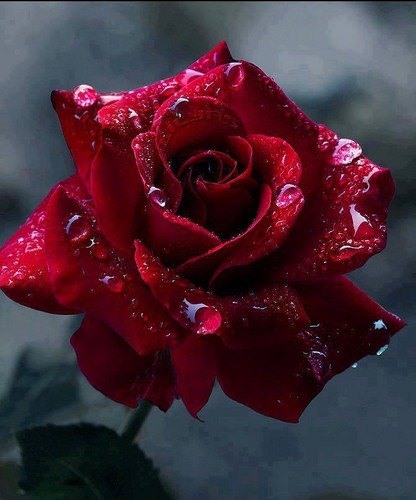Spiritual Sunday
One of today’s Old Testament readings is the story of the manna in the wilderness. Jesus references the story when preaching about spiritual sustenance, and Andrew Marvell does the same in his poem “On a Drop of Dew.”
First, here is God taking care of the starving Israelites:
In the evening quails came up and covered the camp; and in the morning there was a layer of dew around the camp. When the layer of dew lifted, there on the surface of the wilderness was a fine flaky substance, as fine as frost on the ground. When the Israelites saw it, they said to one another, “What is it?” For they did not know what it was. Moses said to them, “It is the bread that the LORD has given you to eat.”
Jesus pushes the lesson further when talking to the crowds that have witnessed the miracle of the loaves and the fishes:
Jesus answered them, “Very truly, I tell you, you are looking for me, not because you saw signs, but because you ate your fill of the loaves. Do not work for the food that perishes, but for the food that endures for eternal life, which the Son of Man will give you. For it is on him that God the Father has set his seal.” Then they said to him, “What must we do to perform the works of God?” Jesus answered them, “This is the work of God, that you believe in him whom he has sent.” So they said to him, “What sign are you going to give us then, so that we may see it and believe you? What work are you performing? Our ancestors ate the manna in the wilderness; as it is written, `He gave them bread from heaven to eat.'” Then Jesus said to them, “Very truly, I tell you, it was not Moses who gave you the bread from heaven, but it is my Father who gives you the true bread from heaven. For the bread of God is that which comes down from heaven and gives life to the world.” They said to him, “Sir, give us this bread always.”
Jesus said to them, “I am the bread of life. Whoever comes to me will never be hungry, and whoever believes in me will never be thirsty.”
In Marvell’s poem, the drop of dew is the soul entering the world and living in uneasy relationship with it. Though the rose upon which it sits is beautiful, the dewdrop still never entirely accommodates itself (“careless of its mansion new”) but longs to return to its celestial home:
But gazing back upon the skies,
Shines with a mournful light,
Like its own tear,
Because so long divided from the sphere.
Restless it rolls and unsecure,
Trembling lest it grow impure,
Till the warm sun pity its pain,
And to the skies exhale it back again.
The poem resembles Henry Vaughan’s “The Waterfall,” in which the water that goes over the falls (comes to earth) evaporates back to heaven. Both poems, meanwhile, anticipate Wordsworth’s Intimations of Immortality, where the soul enters the world “trailing clouds of glory” and longs to reconnect with the great soul from whence it flows. Beautiful though our earthly existence may be, death loses it sting when we think of our souls dissolving “into the glories of th’ almighty sun”:
How loose and easy hence to go,
How girt and ready to ascend,
Moving but on a point below,
It all about does upwards bend.
The manna image appears in the final quatrain of Marvell’s poem. The heaven-sent food, like the dewdrop, mysteriously appeared on earth to feed the Israelites and then just as mysteriously vanished the following day. Our own souls follow a similar path. Here’s the poem:
On a Drop of Dew
By Andrew Marvell
See how the orient dew,
Shed from the bosom of the morn
Into the blowing roses,
Yet careless of its mansion new,
For the clear region where ’twas born
Round in itself incloses:
And in its little globe’s extent,
Frames as it can its native element.
How it the purple flow’r does slight,
Scarce touching where it lies,
But gazing back upon the skies,
Shines with a mournful light,
Like its own tear,
Because so long divided from the sphere.
Restless it rolls and unsecure,
Trembling lest it grow impure,
Till the warm sun pity its pain,
And to the skies exhale it back again.
So the soul, that drop, that ray
Of the clear fountain of eternal day,
Could it within the human flow’r be seen,
Remembering still its former height,
Shuns the sweet leaves and blossoms green,
And recollecting its own light,
Does, in its pure and circling thoughts, express
The greater heaven in an heaven less.
In how coy a figure wound,
Every way it turns away:
So the world excluding round,
Yet receiving in the day,
Dark beneath, but bright above,
Here disdaining, there in love.
How loose and easy hence to go,
How girt and ready to ascend,
Moving but on a point below,
It all about does upwards bend.
Such did the manna’s sacred dew distill,
White and entire, though congealed and chill,
Congealed on earth: but does, dissolving, run
Into the glories of th’ almighty sun.
